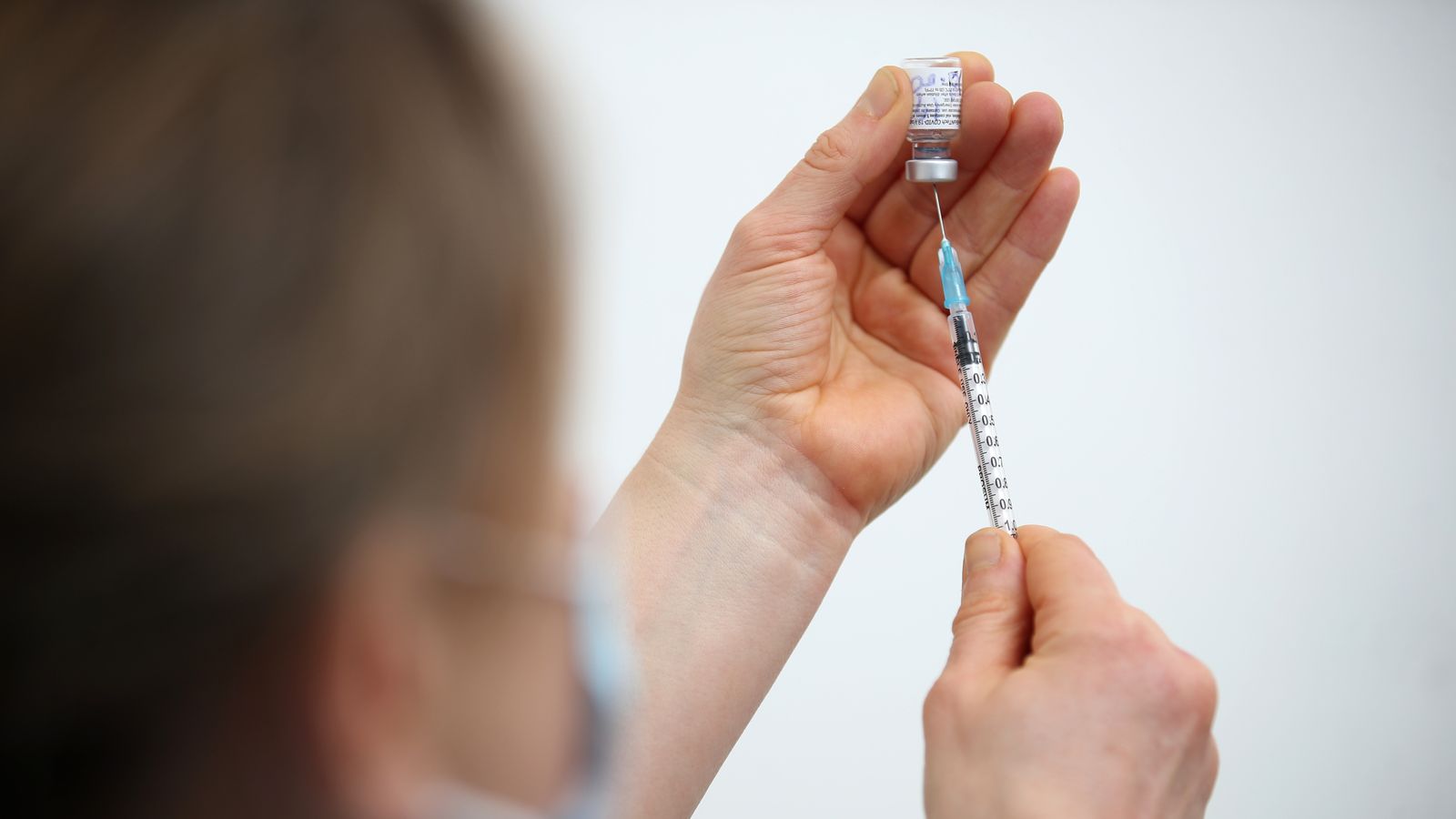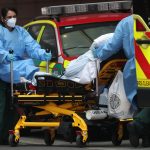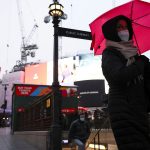The UK has agreed to buy 35 million more doses of the Pfizer-BioNTech vaccine as a way to “future-proof” the jabs programme.
It comes as the government prepares to roll out booster shots from next month – while the head of the World Health Organisation (WHO) has said such shots should be delayed to raise vaccination rates globally.
The coronavirus vaccines, which will be delivered from the second half of next year, will also help the country prepare for any new variants that could emerge.
“While we continue to build this wall of defence from COVID-19, it’s also vital we do everything we can to protect the country for the future too – whether that’s from the virus as we know it or new variants,” Health Secretary Sajid Javid said.
“I am pleased we’ve reached this agreement with Pfizer for more doses as part of our robust preparations to future-proof our vaccine programme, ensuring we have plans in place to keep the nation safe for years to come.”
Please use Chrome browser for a more accessible video player
Some 95,200 lives have been saved by COVID-19 vaccines, according to the latest data from Public Health England and Cambridge University. They have prevented 82,100 hospitalisations and 23.9 million infections in England alone.
No official decision has been given yet on a potential rollout of third doses, but plans are in place to enable a booster programme to begin in early September, alongside the flu jab, if advised.
However, the director of the WHO, Tedros Abhanom Ghebreyesus, said countries’ booster shots should be delayed by two months in order to raise vaccination rates in nations where only 1% or 2% of the population has been inoculated.
Mr Ghebreyesus warned stronger variants of coronavirus could develop if vaccination rates are not raised globally.
He said vaccines intended as booster shots should be donated to countries where people have not received their first or second doses.
“In addition, there is a debate about whether booster shots are effective at all,” Mr Ghebreyesus told a news conference during a visit to Budapest in Hungary.
Those with compromised immune systems should get a booster shot, though they represent only a small percentage of the population, he added.
Last week, the WHO said current data does not indicate COVID-19 booster shots are needed and that the most vulnerable people worldwide should be fully vaccinated before high-income countries deploy a top-up.
The US announced last week that it plans to make COVID-19 booster shots available from 20 September amid a rise in infections from the Delta variant.
Announcing the UK’s agreement with Pfizer-BioNTech, Mr Javid said the UK is “committed to supporting global recovery from the COVID-19 pandemic and improving access to vaccines” and will be donating 100 million doses within the next year. It came after the UK announced the donation of the first nine million doses last month.
Mr Javid also said: “The UK is also one of the largest donors to the COVAX facility, the global mechanism to help developing countries access a coronavirus vaccine, and has committed £548m in UK aid to help distribute 1.3 billion doses to 92 developing countries this year.
“The government is preparing for a booster programme this year to ensure those most vulnerable to COVID-19 are protected. The booster programme will be based on the final advice of the Joint Committee on Vaccination and Immunisation (JCVI), expected in September.”






















